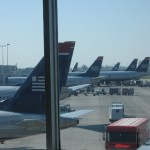Why airline alliances are good for fliers
 The Star Alliance’s 15th birthday this month reminds me that a global airline alliance is one of the most fascinating concepts in the history of commercial aviation. It’s also an example of the airline industry’s creative thinking aimed at increasing revenues. However, unlike some of the questionable practices I described in “Decoding Air Travel,” this one has dramatically improved the customer experience.
The Star Alliance’s 15th birthday this month reminds me that a global airline alliance is one of the most fascinating concepts in the history of commercial aviation. It’s also an example of the airline industry’s creative thinking aimed at increasing revenues. However, unlike some of the questionable practices I described in “Decoding Air Travel,” this one has dramatically improved the customer experience.
It’s fascinating for me personally, because it combines my two passions and areas of expertise, international affairs and air travel. In fact, what alliance executive teams do every day is nothing short of diplomacy. International negotiations and dispute resolution are two of their specialties, and a big part of their duties is selecting new members, not unlike NATO and the European Union.
When Star was formed in 1997, the idea was not only to represent its members’ best interests — that’s primarily the job of trade associations — but to boost business by feeding passengers from one carrier to another in the smoothest possible way. Soon, airline diplomacy began in earnest — first among alliance members, which after all are rivals in a fiercely competitive industry, and then with airports, transportation authorities and governments around the world. The other two global alliances are Oneworld and SkyTeam…









